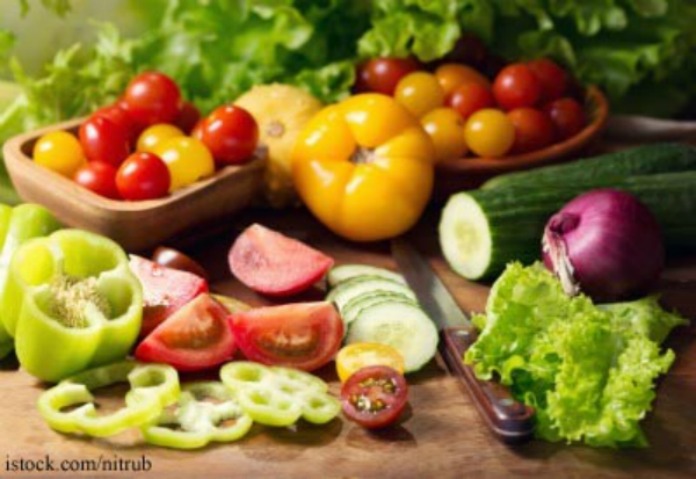Triple wash your veggies, researchers at West Virginia University Extension advises consumers, to reduce bacterial counts and avoid food poisoning. Researcher Cangliang Shen, associate professor of human nutrition and foods at the university, has studied the microbial safety of farmers market produce, which revealed a risk for microbial contamination from pathogens such as E. coli, Salmonella, and Listeria monocytogenes.

Outbreaks linked to fresh produce are very common; in fact, they are more common than people think. For instance, there were 40 outbreaks linked to leafy greens from 2009 to 2018. And last year a Salmonella outbreak linked to cantaloupe sickened at least 88 people in 12 states.
A 2015 study conducted by Shen and graduate students KaWang Li and Wentao Jiang at the WVU Small Farm Center found that fresh produce from a farmers market in West Virginia was contaminated with Salmonella and Listeria monocytogenes bacteria.
The study found that triple washing vegetables is the most effective way to limit risk of contracting a foodborne illness. Two separate water washes, which help eliminate dust, organic matter, and soil, followed by a dip in an antimicrobial sanitizer called SaniDate-5.0 were used.
The soil and dust must be removed, which is why two water washes, using clean fresh water each time, are needed. Shen said that most of the contamination was in the soil. He added that when you bring vegetables home, wash and dry them, separate them from other produce, and place them into zip-lock bags and always store them in the refrigerator.




